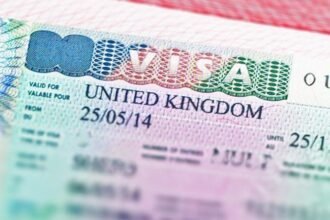In the globalized world of entrepreneurship, startup founders and innovators increasingly seek opportunities beyond their home countries. Whether driven by access to funding, favorable tax regimes, thriving tech ecosystems, or a desire to scale internationally, many entrepreneurs turn to startup visa programs as a gateway to expanding their businesses abroad. Startup visa programs are immigration initiatives introduced by several countries to attract talented entrepreneurs with innovative business ideas. These programs not only promote economic growth and job creation but also foster diversity in national startup ecosystems. For aspiring international entrepreneurs, understanding how to navigate the application process, requirements, and long-term implications of startup visa programs is essential for success. In this in-depth article, we explore the global landscape of startup visa programs, eligibility criteria, common challenges, and practical strategies for increasing the odds of acceptance.
Understanding the Concept of a Startup Visa
A startup visa is a category of visa that allows foreign entrepreneurs to enter, reside, and establish a new business in a host country. Unlike traditional work or investor visas, startup visas are typically tailored to individuals with scalable, innovative business ideas that align with the host country’s economic and technological goals. These programs are designed to attract not just capital, but high-potential individuals capable of creating jobs and contributing to the local innovation economy. Countries offering startup visa programs usually require applicants to demonstrate a strong business plan, secure endorsements from approved organizations, or obtain investment from accredited investors. Some of the most recognized programs are found in Canada, the United Kingdom, Australia, France, and several EU nations.
Why Countries Offer Startup Visa Programs
Startup visa initiatives are more than just immigration pathways—they’re economic development tools. Nations facing talent shortages or aiming to become hubs for innovation recognize the value of attracting global entrepreneurs. These programs can help boost GDP, stimulate innovation, enhance competitiveness, and bridge local skills gaps. Countries like Canada and France have become prime examples of how well-designed startup visa policies can help rejuvenate local economies and create cross-border startup success stories. Moreover, governments gain the added advantage of fostering international goodwill and soft power by positioning themselves as open and inclusive destinations for innovation.
Overview of Major Startup Visa Programs
Each country structures its startup visa differently, with varying eligibility requirements, benefits, and paths to permanent residency. Below are examples of prominent programs and what makes each unique:
Canada: Start-Up Visa Program
Canada’s Start-Up Visa Program is among the most well-established. It targets immigrant entrepreneurs with the skills and potential to build businesses in Canada that are innovative, can create jobs for Canadians, and can compete globally. Applicants must secure a letter of support from a designated organization—either a venture capital fund, angel investor group, or business incubator. The program leads to permanent residency and allows for team applications of up to five co-founders.
United Kingdom: Innovator Founder Visa
The UK’s Innovator Founder Visa replaced the older Startup and Innovator visas and targets experienced entrepreneurs. To qualify, applicants need to be endorsed by an approved UK endorsing body and show that their business is innovative, viable, and scalable. The program grants an initial three-year stay, extendable and leading to indefinite leave to remain. Unlike its predecessor, it does not have a minimum investment requirement, but the applicant must demonstrate sufficient funds to sustain the business and themselves.
France: French Tech Visa
France’s French Tech Visa is part of the broader French Tech initiative, offering a streamlined process for non-EU startup founders, employees, and investors. Entrepreneurs must be selected by one of France’s 100 certified startup incubators or accelerators and present a viable business plan. This four-year renewable residence permit allows family inclusion and fast-tracks the path to long-term residency.
Australia: Global Talent Visa and Entrepreneur Stream
Australia offers multiple pathways for entrepreneurs, including the Business Innovation and Investment Program (BIIP), which has an Entrepreneur stream. This stream is for individuals with an agreement for at least AUD 200,000 in funding from a third party to undertake a complying entrepreneur activity. Applicants must be nominated by a State or Territory government.
Other Notable Programs
- Estonia: Offers a Startup Visa for non-EU founders who plan to launch a startup in Estonia.
- Portugal: Its Startup Visa Program welcomes innovative business founders who wish to develop projects that foster knowledge and tech in Portugal.
- Netherlands: Entrepreneurs can apply through the Startup Visa program with support from an approved facilitator.
Common Eligibility Requirements
While requirements vary, most startup visa programs share several core elements:
- Innovative Business Idea: Applicants must present a novel concept or product with a scalable business model.
- Business Plan: A well-documented business plan demonstrating feasibility, market need, and competitive strategy.
- Endorsement or Support: Some countries require backing from a government-approved entity such as an incubator or investor.
- Financial Requirements: Proof of sufficient funds to support living expenses and business operations.
- Language Proficiency: Some nations may require basic proficiency in the national language or English.
- Clean Criminal Record: Background checks are standard across all programs.
How to Choose the Right Program
When deciding which startup visa program to pursue, consider:
- Ecosystem Fit: Choose a country with a startup ecosystem that aligns with your business sector.
- Immigration Goals: Consider whether the visa leads to permanent residency or citizenship.
- Funding and Support: Look for programs with strong local investor networks or government grants.
- Market Access: Evaluate the country’s access to target markets, customer base, and logistics.
- Family and Lifestyle: Consider educational and healthcare services, cost of living, and quality of life.
Crafting a Winning Business Plan for Visa Applications
A successful startup visa application hinges on a compelling business plan. Key components include:
- Executive Summary: A concise overview of the business, vision, and goals.
- Market Research: Demonstrate an understanding of the target market and customer needs.
- Product or Service Description: Detail what makes your solution unique and competitive.
- Revenue Model: Clearly explain how the business will generate income.
- Team and Management: Highlight your qualifications and experience.
- Financial Projections: Offer realistic forecasts for revenue, expenses, and profitability.
- Milestones and Timelines: Include a roadmap showing how you will execute your vision.
Securing Endorsements and Investment
Many programs require endorsement by an incubator, accelerator, or investor. Steps to obtain support include:
- Research Potential Endorsers: Identify organizations aligned with your industry and goals.
- Prepare a Pitch Deck: Summarize your business in a visually engaging, professional presentation.
- Network Actively: Attend international startup events, pitch competitions, or webinars.
- Follow Submission Guidelines: Each endorser may have unique evaluation criteria and processes.
- Be Transparent and Honest: Misrepresentation can result in rejection or blacklisting.
Common Challenges and How to Overcome Them
Many startup visa applicants face hurdles such as:
- Documentation Complexity: Work with immigration lawyers or consultants to ensure accuracy.
- Language and Cultural Barriers: Take language courses and familiarize yourself with local business etiquette.
- Proof of Innovation: Consider filing for patents or providing demo prototypes.
- Meeting Deadlines: Stay organized with timelines and submission schedules.
- Business Failure Risk: Startup life is inherently risky—choose countries that allow pivoting or reapplication if the original venture fails.
Maintaining Visa Status and Renewals
Once approved, maintaining your status involves meeting ongoing conditions such as:
- Business Activity: Continue developing and operating your business as described.
- Residency Requirements: Spend a minimum number of days per year in the host country.
- Reporting and Compliance: Submit progress updates or tax filings as required.
- Employment of Locals: Some programs require the hiring of local staff within a timeframe.
Failing to meet these requirements can result in visa cancellation or denial of future renewals.
Pathways to Permanent Residency and Citizenship
A key benefit of many startup visa programs is the potential to transition to permanent residency or even citizenship. Typically, this requires:
- Successful Business Operation: Demonstrated revenue, customer base, or investment.
- Tax and Legal Compliance: Clean record of paying taxes and following laws.
- Continued Residency: Physical presence in the country for a set number of years.
- Language or Integration Tests: Required in some jurisdictions to obtain citizenship.
Always review the long-term immigration pathways at the time of applying to align them with your personal and professional goals.
Case Studies of Successful Entrepreneurs
Canada: Tech Founder from India
An Indian software engineer used Canada’s Start-Up Visa to launch an AI-driven platform for remote health diagnostics. After securing support from a Toronto incubator, she moved with her family, grew the company to 20 employees, and eventually obtained permanent residency.
France: Social Impact Startup from Nigeria
A Nigerian entrepreneur launched a sustainability-focused fashion brand through the French Tech Visa. Incubated in Paris, the business scaled to include partnerships with European retailers and gained access to EU funding.
Estonia: Blockchain Startup from Argentina
An Argentinian developer relocated his fintech startup through Estonia’s Startup Visa. The business benefited from the country’s e-Residency program and proximity to the EU market, rapidly attracting European clients.
Additional Resources and Tools
- Startup Visas by Country – A curated global database of programs
- EU Immigration Portal – Information on migration policies in the EU
- Global Startup Ecosystem Report – Market trends and ecosystem rankings
- Accelerators and Incubators Directory – Find partners and support networks
- WES Credential Evaluation – Necessary for validating academic qualifications
Conclusion
Navigating the startup visa process is a journey that requires preparation, resilience, and a well-crafted business vision. For international entrepreneurs, these programs open the door to new markets, access to capital, and vibrant innovation communities. The benefits are significant not just in terms of business growth, but in the opportunity to live and thrive in some of the world’s most dynamic countries. With careful planning and informed decision-making, a startup visa can be your passport to global entrepreneurship. If you’re considering applying, start by researching the specific requirements of your destination country and seek guidance from legal experts or startup support organizations. By doing so, you’ll be better equipped to turn your business idea into a reality no matter where you call home.



